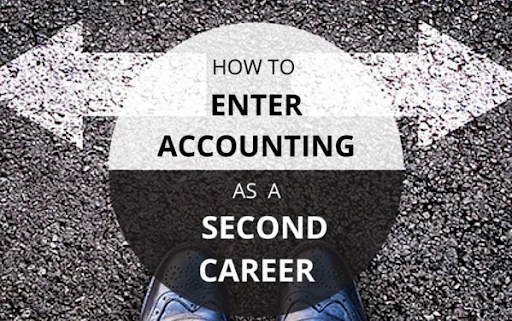FREE CPA Exam Basics eBook
CPA Exam candidates come from many different backgrounds. From young accounting college students, to young/experienced professionals in the industry, and also–and perhaps a less conventional route–those who are looking at accounting as a second career. And why not? The truth is, accounting is a great second career. With a Bachelor’s or Master’s degree and the 150 hour requirement for the CPA license, you can start at around $50,000 in many public accounting firms across the nation.
While many people think being older works against them, in actuality, there are tons of people in their late 30’s and early 40’s working for Big 4 and other major accounting firms. You have the best chance to find a job while you’re completing your degree.
So if you’re looking to make accounting your second career, here are some recommendations that will work well to help you along your transition.
If you don’t have a degree, enroll in a Bachelors of Accounting.
If you have a non-related degree, enroll in a Master’s of Accounting program even if you don’t meet all the requirements. Complete the undergraduate accounting courses as part of the Master’s degree. Whether you have a Bachelor’s or a Master’s degree, the most important thing is that you have the required 150 credit hours to become a licensed CPA in most states.
Since this is your second career, you’ll want to get into the industry as quickly as possible.
If you’re a non-traditional student, it’s important that you immerse yourself within the accounting industry. This includes meeting professors, fellow students, and joining Beta Alpha Psi Chapters (make sure any school you join has one). Go to events such as Meet the Firms, career fairs, and anything else offered so that you have a chance to network and get to know the ins and outs of the industry. Be social and do all that you can to learn more in order to give yourself an advantage to get ahead of the game.
FREE Download – Career Path Infographic
Find a full-time job in accounting.
Once you join a University and get on the fast track to complete your 150 hour requirements for the CPA Exam, find a full-time job in accounting. It may pay less than what you currently make, but you have to think about the bigger picture and the fact that you need to get your foot in the door. If you get a full-time job in accounting, it will be a low-level position, but great experience. You can earn anywhere from 20-40K per year while completing your degree, and since many states require at least 1 year of accounting experience in order to obtain licensure, it’s a win-win situation.
Once you’re within 18 months of graduating, try to find another job.
One of the great things about the accounting profession is that accounting firms regularly hire people 12-18 months before they graduate. Often times you’ll get a paid internship which will pay anywhere between $15-23 per hour. At the end of the internship, they offer full-time positions to 90%+ of the people who go through their programs. Once you get the offer, completing the rest of your degree becomes a lot less stressful.
Your best leverage is maturity and experience in the workplace.
Switching gears in careers and industry can be a big and intimidating step, but remember that you have plenty of great transferrable skills from your past career that you can use to help you in your new one.
Although you will have to learn everything from the ground up, and sometimes you may be taking instruction from people 15-20 years younger than you, don’t let that deter your career path. Learn to acclimate. You’ve been here before in your first career, so you have a huge advantage when it comes to understanding new processes, practices, and job responsibilities. Execute them well and you’ll be a great role model for everyone.
With that being said, accounting is an incredibly rewarding experience, especially as a CPA. If you decide to pursue it, you won’t regret it! It’s never too late to pursue your accounting dreams!
Related Articles
Public Accounting: Audit or Tax?
How Accounting Students Can Jump Start Their Career
Which CPA Career Path is Right for You?




